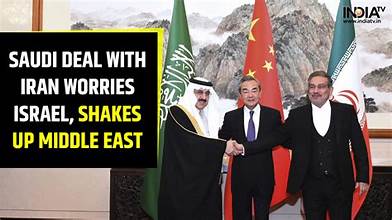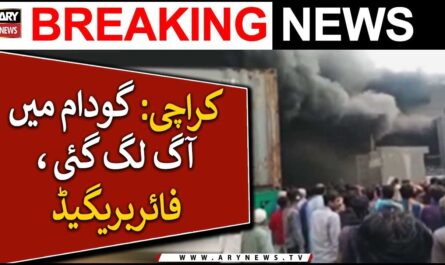In the complex and ever-shifting landscape of Middle Eastern and South Asian geopolitics, Pakistan has once again reiterated its position as a staunch ally of Saudi Arabia. Recent remarks by Rana Sanaullah, a senior political leader and former Interior Minister of Pakistan, have sent strong signals across regional and international platforms. He stated that Pakistan stands prepared to respond if Israel initiates any form of aggression against Saudi Arabia.
This declaration underscores Pakistan’s long-standing strategic, religious, and political ties with Saudi Arabia while also positioning the country as a potential actor in the wider geopolitical rivalry involving Israel, Palestine, and Arab nations. The warning also raises critical questions about the potential implications for regional stability, Pakistan’s diplomatic posture, and the broader Muslim world’s unity.
Pakistan-Saudi Arabia: A Historic Brotherhood
Pakistan and Saudi Arabia share a relationship rooted in both history and faith. Since Pakistan’s independence in 1947, Saudi Arabia has been one of its closest allies, offering economic, political, and religious support during times of crisis.
Saudi Arabia has provided oil concessions, financial aid, and investments in Pakistan’s infrastructure, while Pakistan has reciprocated by offering military assistance, training, and strategic cooperation. The bond is further strengthened by religious ties, as millions of Pakistanis travel annually to Saudi Arabia for Hajj and Umrah.
Against this backdrop, any threat to Saudi Arabia is often perceived in Pakistan as a threat to its own strategic and religious integrity. Rana Sanaullah’s remarks reflect this very sentiment, emphasizing the shared destiny of the two nations.
Israel-Saudi Relations: A Sensitive Topic
The issue gains more weight considering recent global discussions around normalization of relations between Israel and Saudi Arabia. While the Abraham Accords saw Israel establish ties with the UAE, Bahrain, and Morocco, Saudi Arabia has remained cautious due to its central role in the Muslim world and its guardianship of Islam’s holiest sites.
For Pakistan, normalization between Saudi Arabia and Israel could pose challenges, as Islamabad has historically refused to recognize Israel until the Palestinian issue is resolved. Thus, Rana Sanaullah’s warning comes not only as a protective stance toward Saudi Arabia but also as a reiteration of Pakistan’s rejection of Israel’s aggressive policies in the Middle East.
A Message of Deterrence
When Rana Sanaullah declared that Pakistan is “prepared to retaliate” against Israel if Saudi Arabia is attacked, the message was more about deterrence than direct aggression. Pakistan, being a nuclear-armed state with one of the largest standing armies in the Muslim world, is well-positioned to project strength.
The warning serves multiple purposes:
- Signaling Alliance Strength – It reassures Saudi Arabia that Pakistan will not abandon it in times of need.
- Challenging Israel’s Calculations – It reminds Israel that any hostile action in the Gulf region could lead to wider consequences beyond Arab states.
- Uniting the Muslim World – It reinforces Pakistan’s image as a defender of Muslim causes, particularly against any potential Israeli hostility.

The Regional Security Context
The Middle East is already a volatile arena, with ongoing conflicts in Gaza, Lebanon, Syria, and Yemen. Any military confrontation between Israel and Saudi Arabia could destabilize oil markets, disrupt global trade routes, and inflame sectarian divisions.
For Pakistan, the stakes are especially high:
- Economic Interests: Millions of Pakistani expatriates work in Saudi Arabia and the Gulf, sending billions in remittances.
- Energy Security: Pakistan heavily relies on Saudi oil imports.
- Strategic Alliances: Stability in Saudi Arabia is directly tied to Pakistan’s own security and prosperity.
Thus, Islamabad cannot afford to remain neutral if Saudi sovereignty is directly challenged.
Rana Sanaullah Warns: Pakistan Prepared to Retaliate if Israel Attacks Saudi Arabia
Pakistan’s Balancing Act
While Rana Sanaullah’s statement projects boldness, Pakistan also faces the challenge of balancing relations with other powers. The United States, a close ally of Israel, is also a major partner for Pakistan in terms of trade, technology, and defense cooperation. China, another vital ally of Pakistan, has its own stakes in Middle Eastern stability through the Belt and Road Initiative.
Therefore, while Pakistan may declare readiness to retaliate, its actual response would likely be carefully calculated to avoid escalation with Western powers. Diplomacy, intelligence-sharing, and joint defense planning with Saudi Arabia would form the practical steps behind such rhetoric.
Implications for the Muslim World
Rana Sanaullah’s remarks also touch upon a broader issue: the unity of the Muslim world in the face of external aggression. Historically, divisions among Muslim nations have often diluted collective responses to crises. By making this declaration, Pakistan positions itself as a leader willing to defend not just Saudi Arabia but also the larger Muslim cause.
If acted upon, such a stance could inspire other nations to rally around Saudi Arabia in case of external threats. Conversely, it could also invite criticism from countries that prefer diplomatic solutions over military confrontation.
International Reactions
Although Rana Sanaullah’s remarks are primarily aimed at domestic and Muslim world audiences, they will not go unnoticed internationally. Israel, for instance, may view such rhetoric as hostile, prompting it to strengthen its security and diplomatic maneuvers. Western nations might interpret the warning as an escalation that complicates peace efforts in the region.
At the same time, countries like Iran, Turkey, and Qatar may see Pakistan’s stance as either supportive or competitive, depending on their own alignments with Saudi Arabia. This reflects the deeply interconnected and sensitive nature of Middle Eastern geopolitics.

The Way Forward
While Rana Sanaullah’s warning underscores Pakistan’s loyalty to Saudi Arabia, the practical way forward lies in diplomacy and deterrence rather than direct confrontation. Pakistan must continue strengthening military cooperation with Saudi Arabia, but also invest in diplomatic initiatives to prevent escalation.
Moreover, Islamabad should use its influence to promote dialogue between Israel and Muslim nations, keeping the Palestinian cause central to any negotiations. The world today is too interconnected for full-scale wars; thus, proactive diplomacy remains the most powerful weapon.
Conclusion
Rana Sanaullah’s statement that Pakistan is prepared to retaliate if Israel attacks Saudi Arabia is more than just political rhetoric—it reflects the deeply rooted alliance between the two nations, shaped by history, religion, and strategic interests.
The warning sends a strong deterrent message while also highlighting Pakistan’s role as a defender of Muslim solidarity. However, the path ahead demands careful balancing of alliances, proactive diplomacy, and a clear focus on regional stability.
In the turbulent waters of Middle Eastern geopolitics, Pakistan’s readiness to defend Saudi Arabia reaffirms not just an alliance but a shared destiny that could shape the region’s future.



